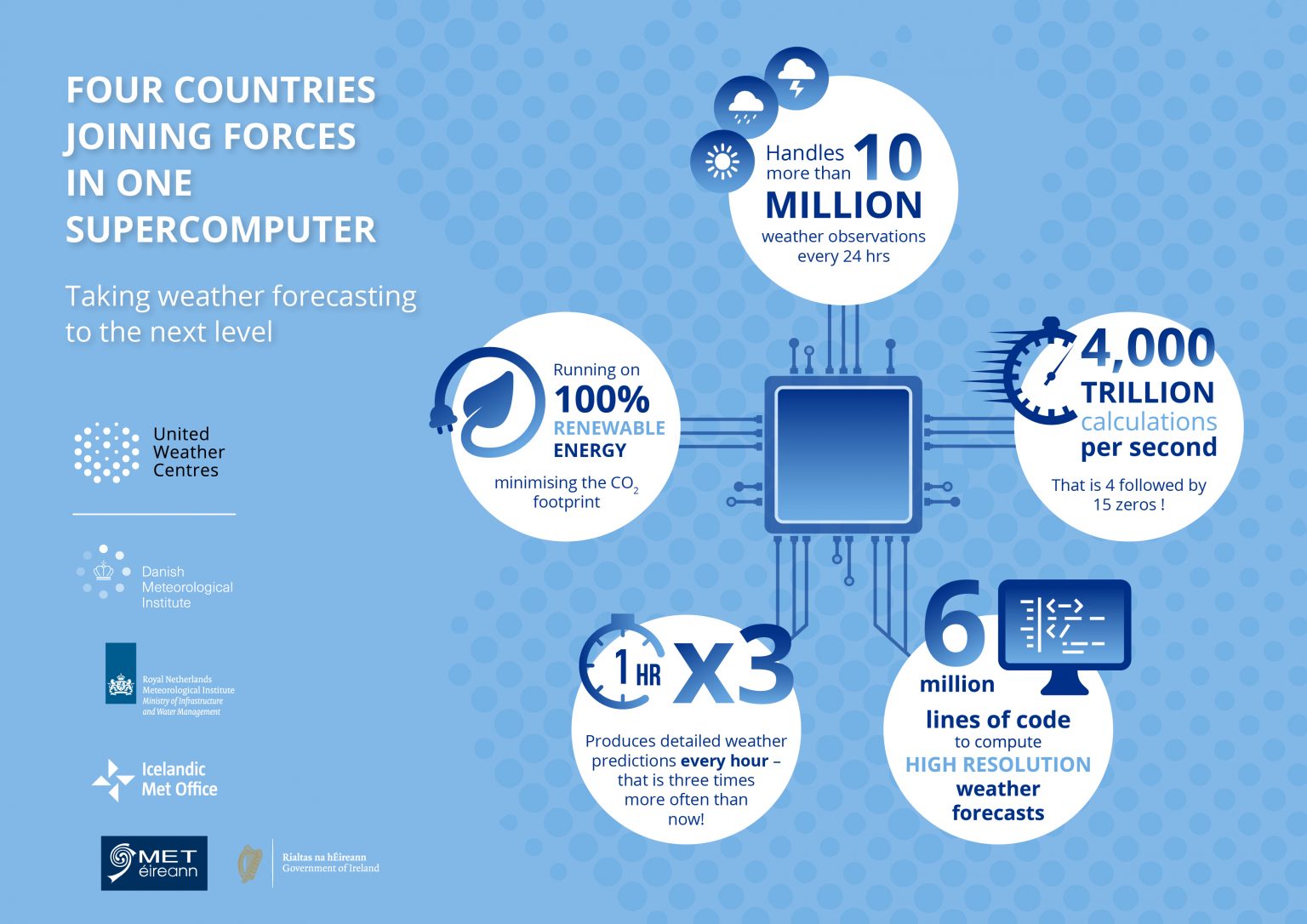Weather forecasts to get 'more accurate' as Met Éireann moves to supercomputer
Met Éireann has joined forces with weather services across Denmark, Iceland and the Netherlands for better forecasts.
The State forecasters will jointly operate a new supercomputer, based in Reykjavík, for more “timely and accurate forecasts”.
The forecaster says it will bring significant advancements to short-term weather forecasting, and will also be used to advance climate science research.
It says the supercomputer will provide high-resolution forecasts that will be used to:
- Provide more accurate and timely weather warnings that will allow emergency services to prepare for potential impacts of severe weather
- Help people and communities make better decisions to protect lives, homes and businesses when impacted by extreme weather events
- Enable the agricultural sector to make earlier decisions to protect and better manage their crops and livestock
- Provide more timely and focused information to marine communities
- Support the transport and energy sectors with more detailed and timely weather information
 Source: Met Éireann
Source: Met Éireann
The project is part of a broader collaboration between 10 national weather services in Europe, known as United Weather Centres (UWC).
This plans to operate a common, multi-national weather forecasting system by the end of the decade.
Eoin Moran, director of Met Éireann, told The Hard Shoulder better forecasts are forecast.
“What it will allow us to do is to provide more timely and accurate forecasts – which, as we all have experienced, is particularly important during extreme weather.
“It will allow us to run our weather models… at a high resolution – more definition – if you kind of think in terms of high definition televisions.
“We’ll be able to see things clearer – also will allow us to run our models more frequently.
“At the moment we run our forecasting models every three hours, and this will allow us to actually run them every hour.
“And then finally it will allow us to actually capture the uncertainty, or to quantify up the confidence we have in what we expect to happen over the next day, 48 hours, two days, three days.
“And that’s a big step forward in terms of ensemble forecasting and being able to capture the uncertainty”.
The new system is set to be operational by early 2023.
